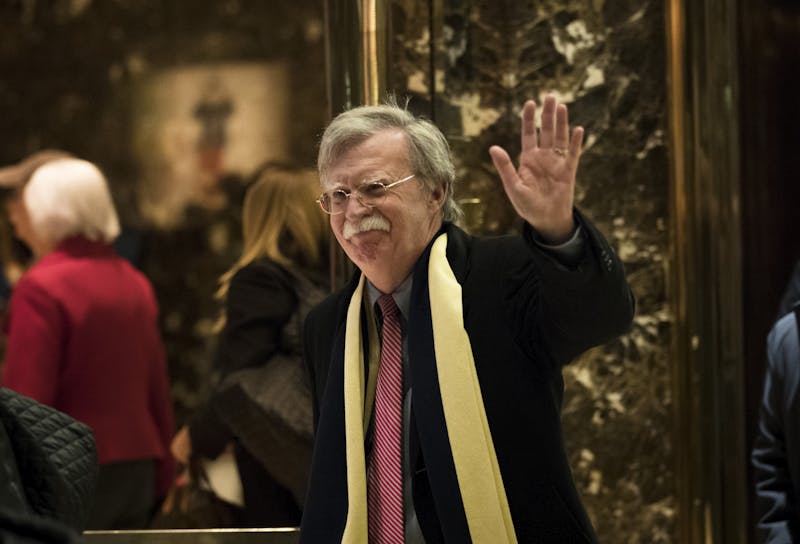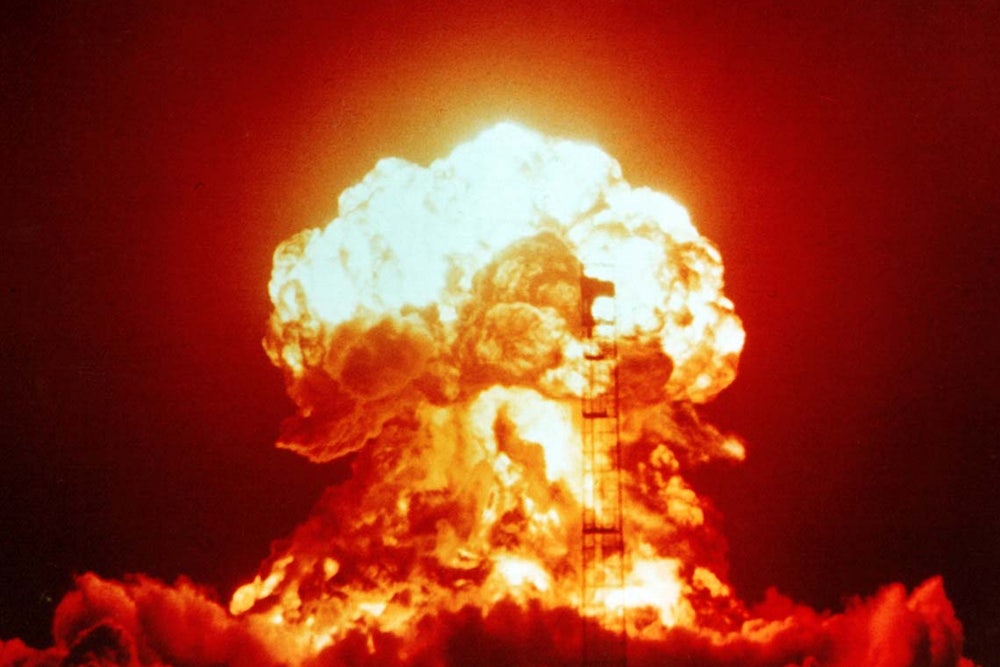If there is anything coherent about Donald Trump’s presidency, it’s the consistency with which he’s tried to undo his predecessor’s policies, both foreign and domestic. He has scrapped the Trans-Pacific Partnership, the Paris Climate Accord, and scores of Obama-era executive orders. He cheered the repeal of the Affordable Care Act’s individual mandate. Now, with the appointment of bellicose former UN ambassador John Bolton to be his next national security adviser, the president seems more likely than ever to shred what he calls “the worst deal ever”—the Iran nuclear agreement.
The Joint Comprehensive Plan of Action (JCPOA), adopted in October 2015, removed sanctions against Tehran in exchange for placing strict limits on its nuclear program. To Trump, it was a “one-sided transaction” whose billions of dollars in lifted sanctions and direct payments enables a dictatorship to better fund its regional adventurism and terrorist proxies. Then there are the deal’s sunset provisions, which remove certain restrictions after 10-15 years. “What is the purpose of a deal that, at best, only delays Iran’s nuclear capability for a short period of time?” he asked in October.
But the terrifying paradox, to some observers, is that in his eagerness to avoid a nuclear-armed Iran, President Trump may not only involve the U.S. in a military conflict, but produce a bomb-ready adversary far earlier than he feared under the deal Obama struck.
In January, Trump announced that if the deal’s eight signatories couldn’t amend it to his liking by an arbitrary deadline of May 12, the United States would walk away. The intent, no doubt, was to confront the terror-supporting autocrats with alacrity, rather than with what he saw as his predecessor’s reticence. But changing a multi-lateral international agreement takes time, and this ultimatum leaves U.S., European, Russian, and Chinese diplomats little of that. In all likelihood, as Trump surrounds himself with hawkish voices like Mike Pompeo for secretary of state and Bolton, who has called for pre-emptively attacking Iran and engineering a regime change there, the president is preparing not for a signing ceremony, but for a walkout.
That could instigate a crisis, veteran Iran watchers worry. “There’s a probability of things getting out of control that could lead to higher friction and a military confrontation with Iran,” said Uzi Arad, a former national security adviser to Israeli Prime Minister Benjamin Netanyahu.
Few consider the Iran deal flawless. Because the lifting of arms embargoes under the deal are time-based and not condition-based, there is nothing stopping Iran from fully complying with the deal until it expires and then developing a nuclear arsenal.
Yet it’s easier to resolve this issue inside the contours of the JCPOA than outside it. Once America walks away and the deal collapses, Iran will be able to reconstitute its nuclear program—and without the presence of an intrusive inspections regime. Non-proliferation experts insist that Iran would then likely reboot its nuclear program not in its old declared facilities, but in other, unfamiliar locations. Leaving the deal, therefore, “would not only make the prospect of Iran developing a bomb in secret more likely,” said Colin Kahl, a former national security adviser to Vice President Joe Biden, “but it would make military action to foreclose that possibility less effective, because if you don’t know where all the targets are, you can’t destroy them.”
Nor would a military option, regardless of timing or what sort of diplomatic tangles preceded it, necessarily be effective. In March 2015, John Bolton wrote an op-ed for The New York Times titled, “To stop Iran’s bomb, bomb Iran.” That chiasmus represents an idée fixe of the hawkish right: that a preventive war with Iran would lead to its permanent de-nuclearization. Yet the record on this is by no means clear. In fact, the evidence in the historical case study much of this rhetoric is based on has shifted considerably in recent decades.
One of the main examples of preventive action to halt a country’s nuclear ambitions was Israel’s bombing of Iraq’s Osirak nuclear reactor in 1981. At the time, it was widely thought that the action had successfully delayed Saddam Hussein’s efforts to become a nuclear power. But ten years later, international inspectors discovered after the Persian Gulf War that Hussein had accelerated his nuclear program by taking it completely underground to undeclared sites. Dan Reiter, an Emory University political scientist, noted in a 2005 study that, “After the attack, the Iraqi nuclear program increased from a program of 400 scientists and $400 million to one of 7,000 scientists and $10 billion.”
The alarming conclusion some experts have now come to is that, far from halting Iraq’s nuclear progress, Israel’s action accelerated it. All that kept Hussein from having a nuclear bomb by the mid-1990s, therefore, was his decision to invade Kuwait. Military action, Kahl told me, “really convinces these regimes that their only shot to prevent this from happening again is to acquire nuclear weapons.”

Bolton’s ascendance to the West Wing is a troubling development in the saga of trying to keep Iran from going nuclear. Disdainful of diplomacy and reportedly both clever and relentless by nature, Bolton advocated for the 2003 invasion of Iraq—the very conflict that gave Iran the leverage it had during recent negotiations with world powers. Tehran knew that Obama did not want to embroil the U.S. in another costly and chaotic Middle East war.
But Trump is plagued by scandals and Special Counsel Robert Mueller’s intensifying investigation into possible collusion between his campaign and Russia. Cynically put, there may well be political advantage in escalating tensions and projecting himself as a tough leader. The same could apply to Netanyahu, who is currently under investigation on corruption charges in Israel.
There is no perfect solution to the Iranian challenge. The nuclear deal did not moderate Iranian behavior—its regime has continued to test ballistic missiles and foment violence in Syria and Iraq—but it has so far kept Iran away from near-term weapons capabilities.
When debate over the deal was at its near apex, Obama declared that his legacy would depend on whether his strategy for curtailing Iran’s nuclear ambitions was successful. “Look, 20 years from now, I’m still going to be around, God willing,” he told The Atlantic’s Jeffrey Goldberg in May 2015. “If Iran has a nuclear weapon, it’s my name on this.” But if Trump pulls out of the accord, accelerating Iran’s nuclear development, that bomb will have Trump’s name on it instead.
